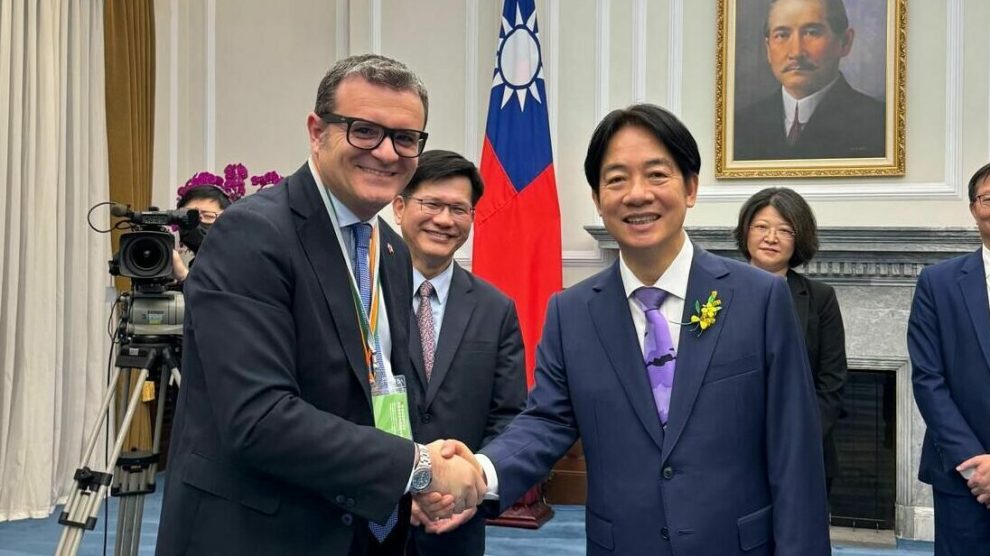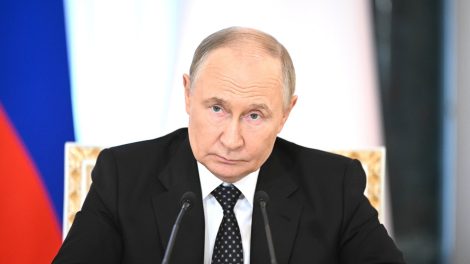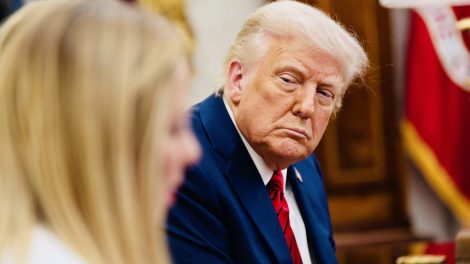From Taipei, Taiwan. The shared “values of peace, freedom and democracy” between Italy and Taiwan have brought Gianmarco Centinaio, Vice-President of the Senate, to Taipei for the inauguration ceremony of the new Taiwanese President William Lai Ching-te and Vice-President Hsiao Bi-khim.
- The League senator leads a delegation of Italian parliamentarians from the Italy-Taiwan Inter-Parliamentary Friendship Group. Two other majority members from Forza Italia are with him: Licia Ronzulli, Vice-President of the Senate, and Senator Daniela Ternullo.
The speech. Lai’s speech today contains “important signs of peace at a critical time for the world; just think of the news coming out of Iran,’ Centinaio told our sister website, saying that he greatly appreciated the words of the new Taiwanese president.
- Also, the remarks about free elections and the importance of the majority respecting the minority and the latter recognising the former,’ he adds.
- “In view of the few European countries present today, Italy can also play a role in Europe by making people aware of the importance of Taiwan, not only economically but also politically,” said the Vice-President of the Senate.
All the honours. Yesterday, the Italian delegation was the guest of honour at the state reception given by outgoing President Tsai Ing-wen, whom Centinaio met less than a year ago in the Taiwanese capital during one of his four visits to Taipei.
- On that occasion, the Vice-President of the Senate told our sister website Formiche.net that “Taiwan is asking Italy and the West not to leave it alone.” And again: “The fear of the Taiwanese is to suffer the same treatment as Afghanistan, abandoned to its fate.”
- This visit added Centinaio, is a further sign, along with the diplomatic, commercial, economic, cultural and even military work, of the attention paid “to a strategic area” that “gives Italy prestige in the eyes of the countries concerned and international partners.”
In the meantime… There is less than a month before the G7 summit, which Prime Minister Giorgia Meloni will host in Borgo Egnazia, Apulia. Then, a month later, Meloni will fly to Beijing for the first meeting with Chinese President Xi Jinping since the Italian decision not to renew the Memorandum of Understanding on the Belt and Road Initiative.
- For PM Meloni, it will also be an opportunity to discuss the results of the G7 with President Xi. As Ambassador Elisabetta Belloni, the Italian G7 sherpa, explained in recent days, at the summit, the G7 will talk not only about Africa, which will be the focus but also about China. In particular, how to “work together” on “global challenges such as climate change” but also on “assertiveness” by “seeking greater balance in trade relations” and “guaranteeing our economic and other security.”
- The ambassador added that the G7 must act as a “steering committee” of democracies and liberal economies to determine how to implement reshoring and derisking policies while still giving China a chance to compete.
What is next? Referring to the Prime Minister’s upcoming international engagements, Centinaio says: ‘Italy must behave as Italy, that is, as an influential, democratic country that is independent of external pressures.
- “Italy’s foreign policy cannot be decided by others, least of all by the People’s Republic of China’.
The call for a stronger stance. In recent weeks, Senator Centinaio has tabled a parliamentary motion calling on the government, also on the occasion of the G7 presidency, to ‘make a firm diplomatic commitment to maintaining the status quo in the Taiwan Strait’.
- He explains that this is “a fundamental objective in order to prevent a dangerous military escalation that would have dramatic consequences not only for the citizens of Taiwan but for the whole region, with important economic and geopolitical repercussions, including in the West.”
- For example, given Taiwan’s central role in the production process and the centrality of semiconductors, the world, and Europe in particular, is unprepared for a possible cut-off and its impact on the chip industry.
- Again referring to the G7, Centinaio concludes with an invitation to the Italian presidency and the other member countries: “It is necessary to convey the message that Taiwan must be involved in the World Health Organisation.”




